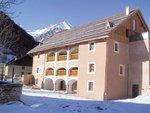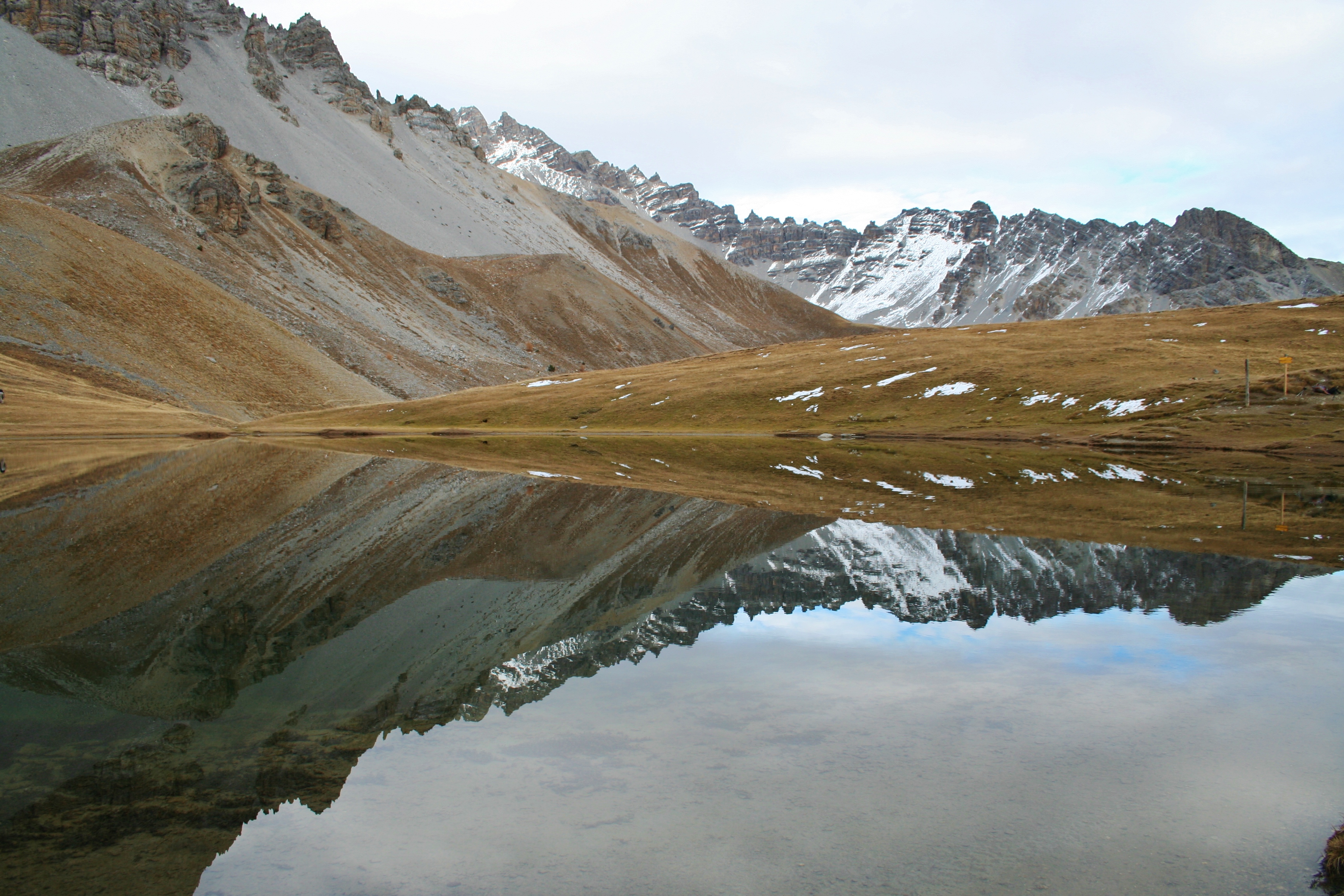
Lac de Souliers
It all started with a breathtaking view of the Casse Déserte and its lunar atmosphere which is constantly rumbling. Then came the dark wood and elegant torture the weather has inflicted on trees. These trees, twisted, bent or uprooted assert their scars, both the harshness of life here but also the strength and flexibility that characterize them and which allow them to live and grow in this hostile terrain. After the forest is the alpine meadow, the screes and austerity of the Grand Rochebrune which accompany the track to the Lac de Souliers.
4 points of interest
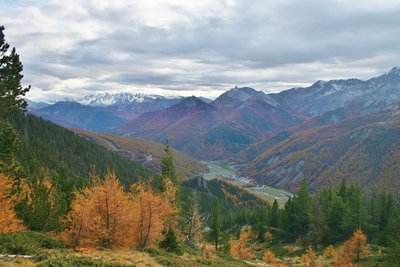
Légende du val d’Arvieux - ©Benjamin Musella - PNR Queyras  Patrimony and history
Patrimony and historyLegend of the Arvieux valley
In the Middle Ages, a young man of the Arvieux valleymarried a woman of rare beauty from Ristolas. They had 5 daughters who found husbands, prosperity and happiness. A picture so perfect that other villagers believed it was witchcraft. 2 castes were formed, the "Renom" for the sorcerers and the "Belle", the wealthiest. This custom was kept in the valley for a long time. If the legend keeps a poetic side, other theories exist. One involves the arrival of new residents and the protectionism of natives. Another speaks of "witch hunts" that raged in the middle of the 14th century.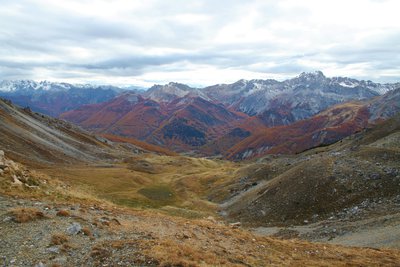
Vue depuis le lac - ©Benjamin Musella - PNR Queyras  Panorama
PanoramaView from the Lac de Souliers
The Lac de Souliers offers an exceptional view. Here, the view towards the Arvieux valley. To the right, the Pic du Béal Traversier overlooks the valley. At the centre, the Croseras ridge plunges on the gorges of the Guil. And bat the back, the Pointe de la Saume and the peaks of Fonte Sancte, Pnestrel and Houerts overlook the Ceillac valley.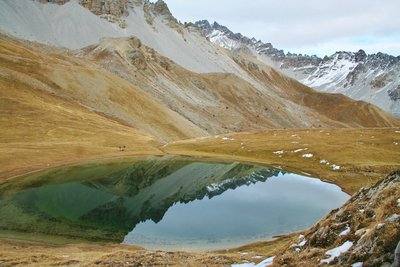
Lac de Souliers - ©Benjamin Musella - PNR Queyras  Geology
GeologyLac de Souliers
Gypsum is a soluble stone and of low cohesion. When confined in the presence of water, the rock dissolves, leaving holes in the ground containing it. The land thus weakened may collapse. The Lac de Souliers settled on the dissolution funnel of a gypsum pocket. Its almost perfect circular form, earned him the nickname of the "eye of Queyras".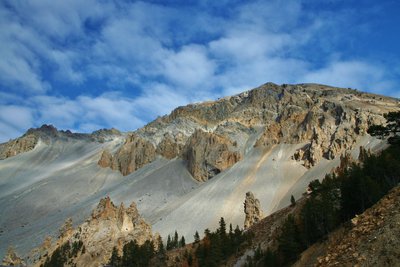
La Casse déserte - ©Benjamin Musella - PNR Queyras  Geology
GeologyCasse Déserte
This unique arid landscape has had a special formation. During the Mesozoic era (-250 to -65 million years ago), sediments settled at the bottom of the Thetys Ocean and formed layers of sedimentary rocks. 40 million years ago, 2 layers, one from the Triassic period (-250 million years ago) and the other from the Cretaceous period (-140 million years ago) collided and inversed. The limestones are crushed and become brittle. Subsequently, water rich in sulphate partly dissolve the limestone giving it this decayed appearance and produces a solution which forms a cement and consolidates these rocks. The friability of the rocks and the action of freeze-thaw climate continue to fuel the screes.
Description
From the car park, cross the road and take the path on the right that enters the forest.
1 - At the point Le Vallon (2 340m), exit the forest, reach a bridle, take the path on the left. Go up until the Lac de Souliers. The same route is used for the return.
- Departure : La Casse Déserte
- Arrival : La Casse Déserte
- Towns crossed : Arvieux and Château-Ville-Vieille
Forecast
Altimetric profile
Information desks
House of the Queyras Regional Nature Park
3580 Route de l’Izoard, 05350 Arvieux
The House of the Queyras Regional Nature Park is closed to the public.
OTI du Guillestrois et du Queyras
Maison du Tourisme du Queyras, 05350 Château-Ville-Vieille
Transport
05 Voyageur: 04 92 502 505 Tourist Office of Queyras: 04 92 46 76 18
Access and parking
From Arvieux, follow the D902 towards the Col d'Izoard and Briançon. Park at Casse Déserte, 2km before the Col d'Izoard.
Parking :
Report a problem or an error
If you have found an error on this page or if you have noticed any problems during your hike, please report them to us here:

